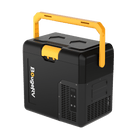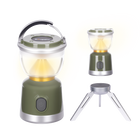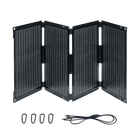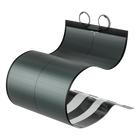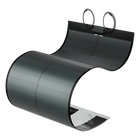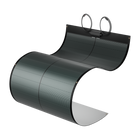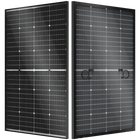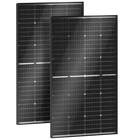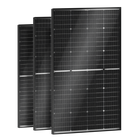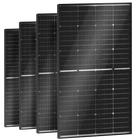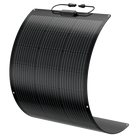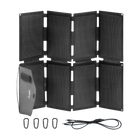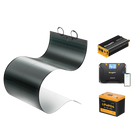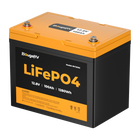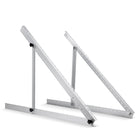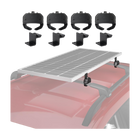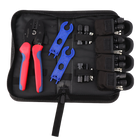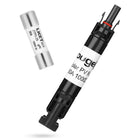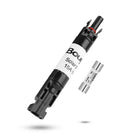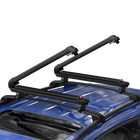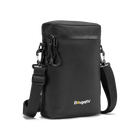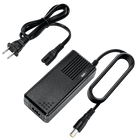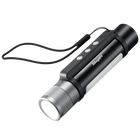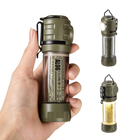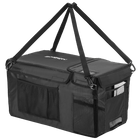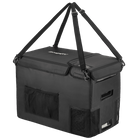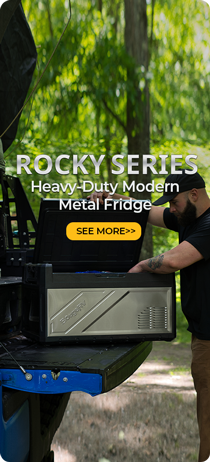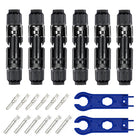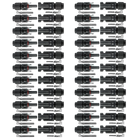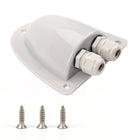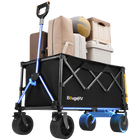Is Living in an RV Cheaper Than a House? Let's Break Down the Costs!

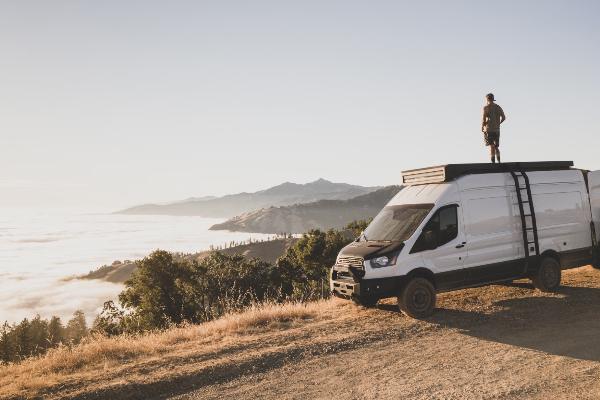
The dream of living minimally and unanchored has really grabbed the attention of lots of adventure-seekers. It's got them thinking seriously about the perks of setting up shop full-time in a recreational vehicle (RV). Imagine this: waking up to a brand new, beautiful view every morning and hitting the road without leaving behind any of the comforts of home. That's what makes RV living such an enticing option compared to the usual way of owning a house.
But aside from the thrill of adventure and the appeal of simplicity, there's this super practical question that keeps popping up: Does living in an RV actually cost less than living in a house? We're going to take a deep dive into the dollars and cents of life on the go and figure out if swapping your permanent address for a set of wheels might mean more cash in your pocket.
Is It Cheaper to Live in an RV than a Home?
To understand whether it's more affordable to live in an RV or a traditional home, let's delve into a detailed cost comparison between RV living and homeownership.
1. Cost Comparison: RV vs. House
One of the most substantial expenses for most Americans is housing. According to the U.S. Census Bureau, the median monthly mortgage payment is around $1,500, while the median rent hovers above $1,000 per month. These costs can vary widely depending on location, size, and other factors.
In contrast, the price of purchasing an RV can range from $10,000 for a basic used model to over $300,000 for a new luxury motorhome. Living in an RV can be less expensive than a monthly mortgage and the cost of maintaining a 2,000 sq ft house.
2. Initial Investment

A clear initial difference between buying an RV and purchasing or renting a house is the upfront cost. Houses typically require a large down payment, often 20% of the property's value, whereas the down payment for an RV can be significantly lower.
Additionally, with various financing options available, securing an RV can be more accessible for those unable to afford the hefty initial investment of a home.
3. Maintenance and Repairs
While homeowners are well-acquainted with maintenance costs, such as landscaping, roof repairs, and appliance upkeep, RV owners also face their share of maintenance issues. However, the scale and scope of these repairs tend to be less extensive and thus less costly. It's important to budget for regular RV maintenance, including engine care, tire replacements, and potential water damage.
4. Utilities and Hookup Costs

Traditional homes come with monthly utility bills for electricity, water, gas, and sewage.
An RV, on the other hand, can either draw utilities from campground hookups for a fee or, for those who prefer boondocking (camping without hookups), from solar panels, portable power stations, and water tanks. While campground fees vary, they typically include utilities, making it easier to control these expenses by choosing cheaper locations or relying on self-sustained systems.
5. Property Taxes and Insurance
Homeowners can't escape annual property taxes, which can be substantial depending on the home's value and location.
For RVers, the equivalent expense is vehicle registration and insurance, which are generally more affordable than homeowner's insurance and property taxes. Of course, this will depend on the RV's value, where you register it, and your chosen coverage level.
6. Lifestyle Choices and Travel Expenses
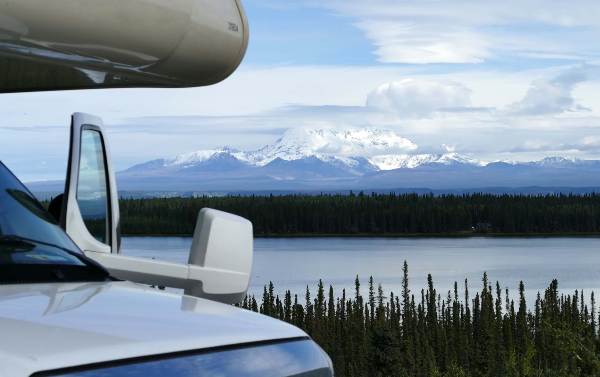
The nomadic lifestyle of an RVer involves travel costs such as fuel, which can fluctuate widely with market conditions. Additionally, RVers must consider the cost of staying at campgrounds or RV parks. While membership clubs offer discounts, the cost of premium locations can add up.
Conversely, stationary homeowners don’t incur these travel expenses, but they may spend money on commutes, vacations, and other transportation costs.
7. Depreciation and Resale Value
Unlike real estate, which often appreciates over time, RVs depreciate much like other vehicles. This means that your initial investment won't build equity in the same way a house might. A well-maintained home can gain value, providing homeowners with a return on their investment when it comes time to sell.
RV owners, however, should expect their purchase to lose value from the moment they drive off the lot.
8. Living Space and Comfort Considerations
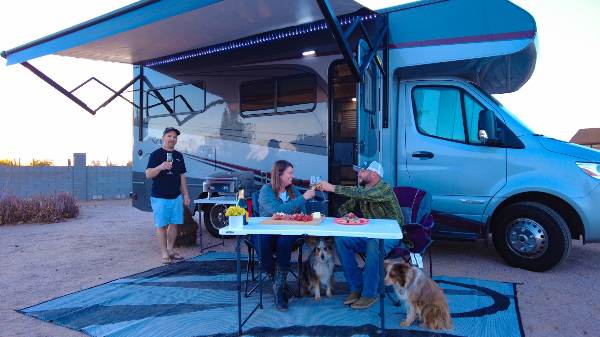
While not directly related to costs, the living space and comfort of an RV compared to a house are points to ponder. Smaller living quarters mean reduced expenses for furnishings and decorations but also limited personal space.
Homeowners might incur higher costs for furniture and décor but enjoy greater space and permanent roots, which some people find invaluable.
Monthly Cost Comparison: Full-Time RV Living vs. Traditional Housing
Here’s a rough estimate of the full-time RV living monthly costs compared to monthly costs for living in a house, though actual expenses can vary widely.
Looking at the table below, we can conclude that living in an RV can be cheaper than living in a house. However, actual expenses can vary significantly based on individual circumstances.
|
Full-Time RV Living Monthly Costs |
Monthly costs of living in a house |
|
1. Campground fees: $500 - $1,500 (depending on location and amenities) 2. Fuel: $250 - $500 (varies by distance traveled and fuel efficiency) 3. Propane: $30 - $70 (for heating and cooking) 4. Groceries/food: $300 - $600 5. Insurance: $100 - $200 (RV insurance and possibly health insurance) 6. Cell phone/internet: $60 - $150 7. Maintenance: $100 - $300 (spread out over the year for routine upkeep) 8. Laundry: $20 - $40 9. Entertainment: $50 - $150 |
1. Mortgage/Rent: $1,000 - $3,000 (can be lower or significantly higher in some areas) 2. Utilities: $100 - $300 (electricity, gas, water, sewage, garbage) 3. Internet/TV: $50 - $150 4. Maintenance & Repairs: $100 - $300 (varies greatly; save for big repairs too) 5. Property Taxes: $100 - $500 (paid monthly via an escrow account with the mortgage lender or directly to the municipality if the home is owned outright) 6. Home Insurance: $50 - $150 (homeowners insurance typically) 7. Groceries/Food: $300 - $600 8. Transportation (car payments, insurance, fuel, maintenance): $250 - $800 9. Health Insurance: $100 - $500 (assuming not covered by employer) 10. Miscellaneous (personal expenses, clothing, entertainment): $250 - $700 |
|
Total estimated monthly cost: $1,510 - $3,610 |
Total estimated monthly cost: $2,300 - $7,100 |
The monthly cost for full-time RV living is quite general and can fluctuate based on personal consumption, the age and condition of the RV, whether you have a loan on the RV, and your travel style.
Similarly, the monthly costs of living in a house can vary widely depending on the location, size, and age of the home, as well as lifestyle choices. These figures are rough estimates for a moderate standard of living in an average-sized home in the United States.
The Bottom Line
When determining whether RV living is cheaper than residing in a house, the answer isn't cut and dry; it largely depends on individual circumstances, lifestyle choices, and financial priorities. If you are big on traveling and have a minimalist lifestyle, the RV lifestyle could mean lots of adventure and maybe more cash in your pocket.
On the flip side, if you value stability, larger living spaces, and the potential for property appreciation, you might favor traditional homeownership despite its higher associated costs.
Considerations Before Making the Switch
Before trading in your house keys for an RV steering wheel, there are several questions to consider:
What type of RV lifestyle do you envision? Full-time travel, seasonal trips, or stationary living?
Are you prepared for the close quarters and minimalistic living inherent to RV life?
Have you calculated the total costs of RV ownership, including loan payments, maintenance, insurance, and travel expenses?
How comfortable are you with the idea of a depreciating asset versus investing in potentially appreciating property?
What is your long-term financial plan, and how does RV living fit into it?
Conclusion

Choosing between the rooted stability of a house and the wandering ethos of an RV presents a complex decision that intertwines finances, lifestyle preferences, and personal values.
While RV living can indeed be lighter on the wallet if approached thoughtfully and managed efficiently, it's not without its trade-offs and expenses. Ultimately, those considering this transition should thoroughly assess your financial situation, long-term goals, and readiness for the unique challenges and rewards that RV life offers.
Whether you find your bliss in a cozy, stationary abode or behind the wheel of a home-on-the-go, BougeRV provides solar panels, portable power stations, portable small fridges, and more for your lifestyle. Go further, stay longer, and live better with our solar gear!
FAQs
1. Would It Be Cheaper to Live in an RV Than a House?
Living in an RV can be way cheaper than living in a house. You don't have the big mortgage hanging over your head, and upkeep costs are usually lower.
Plus, no property taxes like you'd have with a house. However, you'll still need to budget for things like campsite fees, fuel, and maintenance for the RV. It's not free living, but it can be a more affordable option.
2. What Is the Downside of Living in an RV Full-Time?
RV living means tight quarters, minimal storage, and potential struggles with stability for tasks like mail and legal documents. Unreliable internet and complex utility maintenance add to the challenges.
Weather extremes can impact comfort due to poor insulation, and regular waste disposal is necessary. While there may be some cost savings, frequent repairs, and maintenance can make your wallet weep, possibly necessitating temporary housing during major fixes.
3. Is It Better to Buy a House or Buy an RV?
Whether it's better to buy a house or an RV depends on your lifestyle and priorities. A house offers stability, more space, and the potential for property value appreciation but comes with higher costs and less mobility.
An RV provides freedom to travel and lower initial expenses, but involves smaller living quarters and less insulation from extreme weather, along with ongoing maintenance challenges.
4. Is It Cheaper to Live in an RV or an Apartment?
Living in an RV can be cheaper than an apartment due to lower initial costs, no property taxes, and the absence of traditional rent. However, expenses like campground fees, fuel, maintenance, and variable insurance rates can add up.
Apartments typically have more predictable monthly expenses but may include renter's insurance, utilities, and higher living costs depending on the location. Personal lifestyle choices greatly affect overall affordability







